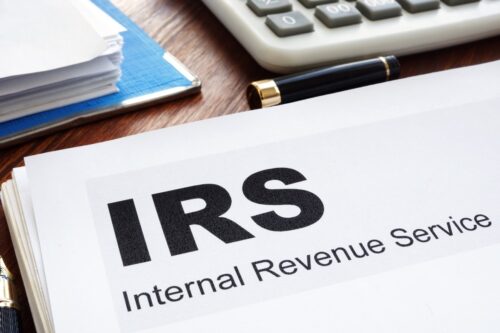April is the nightmare month for taxpayers; the time when you must file your tax returns or incur the wrath of the Internal Revenue Service. If you lose important documents, such as the form 1099, April can become even more agonizing to get by.
That’s why the last two months leading up to tax day should be spent collecting all the necessary forms for filing your taxes. These include your form W-2, write-off receipts for taxes, and form 1099 for miscellaneous income.
If you misplace or lose your form 1099, you’ll most likely fail to file your tax return in time, and you might get slapped with a few penalties.
Why is form 1099 important?
The IRS refers to 1099 as information returns. The 1099 series includes multiple forms such as 1099-B, 1099-S, 1099-MISC, 1099-NEC, and various others. These forms report payments you made to non-employees for business services they provided. They are also used when an employee receives money outside of wages from their employer. The IRS requires companies to mail out these forms by January 31 to independent contractors. Generally, most forms should arrive by late January or early February. They also report how much Social Security earnings to report to the IRS on your tax return.
Three people will get a copy of a 1099:
- The recipient of the payment
- The payer (the person or company making the payment)
- The IRS
- The Internal Revenue Service
- The individual performing freelance jobs
- Your state government.
The 1099 is for:
- Independent contractors
- Freelancers
- Other non-employee service providers
- When you pay more than $600 for business services -- You need to file a form 1099 if you intend to write the business services off your taxes
- Individuals, freelancers, and contractors -- 1099s can only be sent to individuals, partnerships, or LLCs. You do not send them to non-profits, C- corps, or S-corps.
- Anyone you do not pay through PayPal or credit card -- For freelancers or contractors who you pay through credit cards, you do not need to mail a 1099 for them. That’s because their credit card processors will send out special 1099s for them. But if you pay someone by cash or check, then you need to submit a 1099.

The 1099-MISC exists to put people in check by forcing them to report their earnings. It is usually filed with the federal and state governments and the money you pay someone for services rendered is on record. So, if they do not report the earnings, they can be charged with tax evasion as the IRS has proof of it.
If you don't receive your 1099 by mid-February, call your employer or payer for the missing form.
What happens if you lose your 1099 for your tax return?
Unfortunately for everyone, the government is not very forgiving of human error and missing any earnings you receive. The IRS will catch a missing 1099 form. A return filed missing a 1099 may not be outright rejected, however, it may not be considered properly filed until you provide all the required documents.
There are no direct penalties for losing 1099s, but there are penalties for failing to handle your taxes in time because you were searching for a lost 1099. If you lose your 1099 form, the best option is filing for an extension to avoid penalties for late 1099s. Missing information or submitting an incomplete tax return may also incur penalties. For example, sending in a form without your Social Security number can cost you $5 each time it is missing.
The IRS charges varying penalties for incomplete filing depending on the size of your business, but they can be significant. The penalty fees can quickly escalate to up to 25% of the total unpaid taxes for failure to file and pay penalties for taxes owed. There are substantial penalties for not filing 1099 tax returns.
In severe cases, you may be looking at criminal prosecution for tax evasion for failing to report all taxable earnings on your federal tax returns.

What to do if you lost your 1099 tax form?
If you don't include all reported income on your tax return, it will send red flags to the IRS. Report your income as accurately as possible.
If you lose your 1099 tax form, try not to panic. There are many ways to replace almost any document you need to file, and you can submit your taxes without it. Unlike W-2s, which you must file with your income tax, you can submit your 1099s separately. If you include all your taxable income on your returns, then you are fine.
If you lose your form 1099, you can:

How to get a replacement for a lost 1099
This is easy to do because issuers of the form are required to keep a copy. Contact the issuer and ask for a copy of the missing form. When you contact them, insist that they send you a copy of the one you lost and not issue a new one.
1099s are linked to your Employer Identification Number or Social Security number. If you are issued a new 1099, the IRS might think you received twice the income. You can also get a copy of your Social Security 1099 form online instantly by creating a free Social Security account and downloading the form.
How to file without a 1099
You can still file your taxes without 1099 tax forms. This is convenient for self-employed taxpayers. They can do this by:
Reviewing your business bank accounts
If you did not receive a 1099 or you lost it, then reviewing your bank account is a great way to verify that you’ve included all income on your tax return. The income will include payments for which you didn’t receive a Form 1099.
Financial institutions that provide summaries of activities can be very helpful. Keep a clean record of all cash payments you receive as well.
Review and sum up all your invoices and receipts from the prior year
You need to keep track of all your income and expenses so that you can accurately calculate your income tax liability when you report your income.
When you lose a specific 1099, get the information by reviewing the invoices you sent to customers to find your earned income. The same applies if you issued receipts to a payer. Add them up to calculate your total income.

Request an IRS transcript
You can order an IRS transcript when all else fails. The IRS keeps detailed records, and you can view 10 years' worth of information from their transcripts.
To order the transcript, visit IRS.gov and submit your request through the Get Transcript tool. Order the Wage and Income Transcript that includes data about various IRS forms used for wage reporting, such as Form 1099s and Forms W-2. The transcripts contain all your tax return information.
How to file your taxes without a lost 1099
Request a copy from the issuer or IRS
If you have lost your 1099 form, the first step is to request a replacement from the issuer. Contact the company or client who paid you and ask them to send another copy. Many businesses can provide electronic copies quickly, especially if they use platforms like QuickBooks or Square for payments.
If the issuer cannot provide a copy, you can request a transcript of your 1099 from the IRS using Form 4506-T. This transcript shows the income reported to the IRS and is free to obtain. Keep in mind that transcripts can take up to 10 business days to arrive, so plan accordingly to meet tax deadlines.
Taking these steps early helps ensure you have accurate income information. If you’re pressed for time, prioritize contacting the issuer first, as this is usually the fastest way to get your 1099 details.
Use bank statements and payment records to estimate income
When a 1099 is missing and you cannot get a replacement in time, use your bank statements and payment records to estimate your income. Review deposits from clients or payment services like PayPal, Venmo, or Stripe to calculate total earnings for the year.
For example, if you received payments through PayPal, you can download your transaction history directly from your account dashboard. Cross-check these amounts with invoices or contracts to ensure accuracy. This method helps you report income even without the official 1099 form.
Be sure to keep detailed records of how you arrived at your income figures. The IRS expects taxpayers to report all income, and maintaining documentation can protect you in case of an audit. Using accounting software like FreshBooks or Bonsai can simplify this tracking process.
Report income accurately and explain missing 1099s on your return
You must report all income on your tax return, even if you don’t have a 1099 form. Use the income amount you calculated from your records or the IRS transcript. File your taxes using Form 1040 Schedule C if you are self-employed or a freelancer.
If you are missing a 1099, consider attaching a statement to your return explaining the situation. This statement can briefly describe your efforts to obtain the form and how you calculated your income. While not required, this proactive step can reduce confusion if the IRS follows up.
Filing on time with accurate income reporting avoids penalties and interest. If you later receive the missing 1099 and find discrepancies, you can file an amended return using Form 1040-X. Staying organized and transparent is key to smooth tax filing without a lost 1099.
How to avoid losing your 1099 forms
If you frequently lose important documents, consider off-site storage for your most critical papers. Technology can help by allowing you to scan and keep electronic copies of your 1099 forms securely.
You can also scan and digitize paper receipts from the prior year, and back them up using cloud-based storage and remote servers.
Storing tax documents on the cloud is generally discouraged because they contain sensitive information such as your Social Security number and personal tax details.
Final thoughts
If you lost or didn’t receive a 1099, you can obtain a copy online by creating a Social Security account, which takes less than 10 minutes and allows free downloads. You can still submit your tax return without the 1099s. However, retain your business tax documents after filing to support your income and deductible business expenses for the tax year. Good record keeping is essential. Consider digitizing documents to avoid misplacement.






